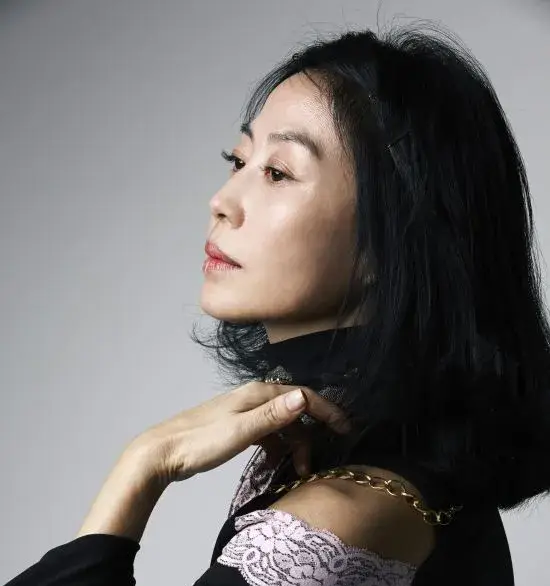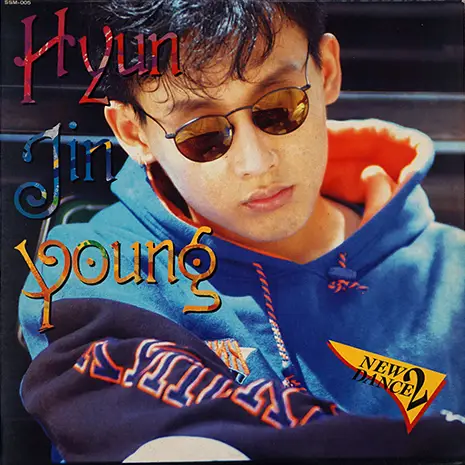
Kim Won-jun is a celebrated South Korean pop singer, songwriter, actor, and educator whose career has spanned more than three decades, making him a significant figure in the evolution of Korean popular culture. Known for his smooth vocals, boyish charm, and adaptability, Kim Won-jun has left a lasting mark on the K-pop industry, television, musical theater, and academia. His journey from a 1990s heartthrob to a respected artist and professor reflects both his personal growth and the broader changes within Korean entertainment.
Early Life and Artistic Foundations
Born on February 16, 1973, in Seoul, South Korea, Kim Won-jun showed an early interest in the arts. He attended Seoul Banpo Elementary and Middle Schools, later graduating from Chung-Ang University High School. He furthered his education at the Seoul Institute of the Arts, majoring in film, and later pursued a master’s degree in Music Technology at Sangmyung University, where he researched voice processing using software vocoders. Kim’s academic background would later inform his multifaceted career, blending performance, composition, and teaching.
Meteoric Rise in the 1990s
Kim Won-jun debuted as a solo artist in 1992 with the album “In the Dead of the Night” (모두 잠든 후에). The title track, a soft and melodic ballad, quickly became a hit, propelling Kim to stardom. His youthful image, gentle voice, and romantic songs resonated deeply with Korean teenagers and young adults during the early 1990s—a period when K-pop was beginning to take shape as a distinct genre. Kim’s follow-up albums, including “Journey for Myself” (나에게 떠나는 여행) in 1993 and “While You Were Not Here” (너 없는 동안) in 1994, solidified his status as a top male solo artist.
His music from this era blended pop, ballad, and dance elements, reflecting the transition in Korean pop from the trot and folk-dominated sounds of the 1980s to the more modern, Western-influenced styles of the 1990s. Songs like “Show,” “Dear,” and “One” became anthems for a generation, and his albums consistently topped the charts. Kim’s popularity was further boosted by his good looks and approachable personality, earning him a massive fanbase and regular appearances on music programs such as KBS’s “Gayo Top 10,” which was a cultural staple for Korean music fans at the time.
Expanding Horizons: Acting and Musical Theater
In addition to his musical achievements, Kim Won-jun made a successful transition into acting. He made his television debut in 1994 and soon took on leading roles in dramas such as “The Blue Sky” (1995), “Garden of Eve” (2003), “Scent of a Man” (2003), and “My Husband Got a Family” (2012), where he played the main character Yoon Bin. His acting career also extended to films, including “Sun of Fire” (1994) and “Bewitching Attraction” (2006).
Kim’s versatility was further demonstrated through his work in musical theater. He starred in productions such as “Radio Star” (2008, 2010), “Jack the Ripper” (2009), “Sherlock Holmes” (2011), and “Rock of Ages” (2012–2013). His performances were praised for their energy, vocal ability, and stage presence, earning him respect in the theater community and broadening his appeal beyond the pop music audience.
Reinvention: Band Activities and Collaborations
Never content to rest on his laurels, Kim Won-jun continually sought new creative outlets. In 2006, after a brief hiatus from solo activities, he became the lead singer of the rock band V.E.I.L, releasing two albums and an EP. The band allowed Kim to explore more experimental and rock-oriented sounds, showcasing his adaptability and willingness to evolve as an artist.
In 2010, Kim joined the vocal group M4, alongside other well-known singers. M4 released an album and two EPs, focusing on rich harmonies and mature themes. These collaborations demonstrated Kim’s ability to work within different musical contexts and with a variety of artists, further cementing his reputation as a versatile performer.
Continued Success and Television Appearances
Into the 2010s, Kim Won-jun remained a familiar face on Korean television. He appeared on numerous variety and reality shows, including “We Got Married” (2011), where his on-screen pairing with actress Park So-hyun was widely loved for its warmth and humor. He was also featured in “Law of the Jungle,” “Immortal Songs: Singing the Legend,” “Hidden Singer,” and “Running Man,” among others. These appearances introduced him to younger audiences and showcased his engaging personality and sense of humor.
Kim’s discography continued to grow, with digital singles such as “Like Myself” (2009), “Who Do You Think You Are?” (2011), and “Love Call” (2012). He also contributed to numerous drama soundtracks, lending his voice to songs for series like “My Husband Got a Family” and “RNA.” His ability to adapt his vocal style to different genres and formats kept his music relevant and in demand.
Educator and Mentor
Beyond his work as a performer, Kim Won-jun has made significant contributions as an educator. He has served as a professor of applied music at Soongsil University, Daegu Arts University, and Gangdong College. In these roles, he has mentored aspiring musicians, sharing his extensive knowledge of performance, composition, and music technology. Kim’s academic pursuits, including his research on vocoders and digital music production, reflect his commitment to advancing the field and supporting the next generation of artists.
Personal Life
Kim Won-jun’s personal life has also attracted public attention. In 2016, he married a prosecutor, Lee Eun-jung, in a private ceremony. The couple has two children. Despite his celebrity status, Kim is known for his humility and dedication to his family, often expressing gratitude for the support of his fans and loved ones.
Legacy and Cultural Impact
Kim Won-jun’s legacy in Korean pop culture is substantial. As one of the defining male solo artists of the 1990s, he helped shape the sound and image of modern K-pop. His romantic ballads and energetic dance tracks provided a soundtrack for a generation, while his willingness to experiment with different genres set a precedent for future artists. Kim’s influence can be seen in the work of many younger singers who cite him as an inspiration.
His career also reflects the broader changes in the Korean entertainment industry. Kim navigated the transition from the analog era of cassette tapes and music shows to the digital age of streaming and social media. He successfully reinvented himself multiple times, moving from solo artist to band member, actor, theater performer, and educator. This adaptability has allowed him to remain relevant and respected in an industry known for rapid change and fierce competition.
Kim’s contributions to musical theater and television have further expanded his impact, introducing him to new audiences and showcasing the breadth of his talent. His role as a mentor and professor ensures that his knowledge and experience will continue to shape Korean music for years to come.
Conclusion
Kim Won-jun’s career is a testament to the power of talent, perseverance, and adaptability. From his early days as a 1990s pop sensation to his current roles as an educator and respected veteran artist, he has continually evolved, inspiring fans and fellow musicians alike. His smooth vocals, charming stage presence, and willingness to embrace new challenges have made him a beloved figure in Korean entertainment.
As both a performer and a mentor, Kim Won-jun exemplifies the spirit of creativity and resilience that defines the best of K-pop and Korean popular culture. His story is not just one of personal success, but of lasting influence—an artist who has helped shape the history and future of Korean music.



